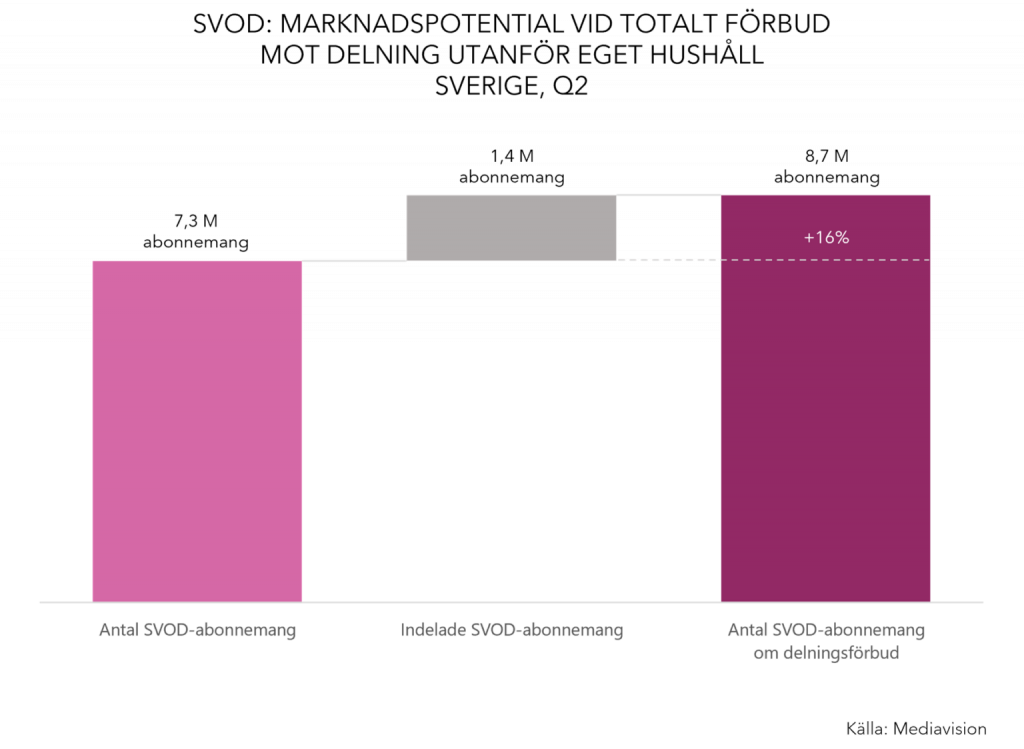Almost half of Swedish SVOD subscribers shares at least one subscription with someone outside the household, said the Sweden-based consultancy Mediavision. If all sharing ceased, they said, the number of subscriptions would then increase from today’s 7.3 million to 8.7 million, or by about 16%. Based on average household spending on independent streaming services, this would amount to about SEK900 million per year (excluding VAT); equivalent to about US$82 million.
Credential sharing has become a growing concern for streaming players, and several companies are now reviewing the possibilities of limiting it.
For example, Netflix took well-publicized steps to reduce account sharing by charging to convert shared accounts into new paid subscriptions. Disney is also reviewing its sharing policy, according to Mediavision. But the analyst firm cautioned about risks in this strategy: some paying households may simply leave (not to mention, some may leave for illegal services).

Original article
Mediavision: SEK 900 million lost streaming revenue due to sharing. Press release. August 31, 2023. Mediavision (auto-translated from Swedish to English via Google Translate)
Why it matters
“Almost half of all SVOD households in Sweden share at least one subscription outside the household, which shows how widespread the phenomenon is,” commented Marie Nilsson, CEO of Mediavision. “Many have simply put this into the system and the households are ‘forced’ to prioritize, increasing the risk that services are selected. However, there are many indications that all actors will review password sharing, which will likely lead to both increased customer traffic and more customers for the SVOD services,” she said.
Some may see this as wishful thinking, as piracy streaming is universally available from sources the world over; to Web browsers, mobile apps, apps that run on legitimate but compromised streaming boxes, and on illicit streaming devices. Of course the battle is ongoing. Most estimates and forecasts see piracy continuing to rise, despite significant victories and national-level law enforcement and legislative initiatives against it.












